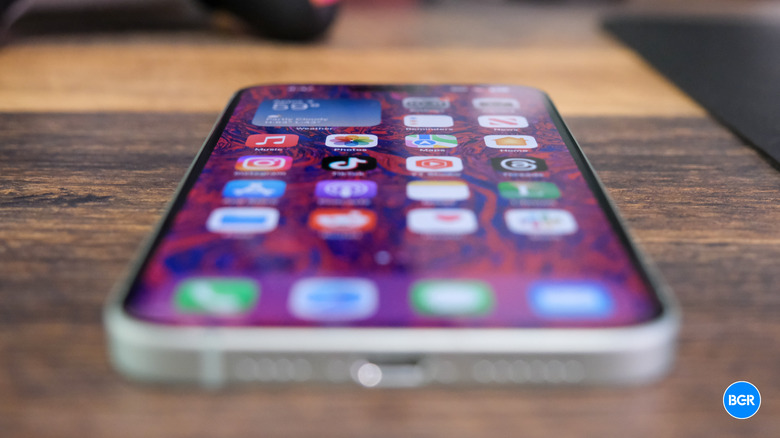AltStore PAL App Store Is Now Free Thanks To A Grant From Epic Games
The European Union (EU) used the new Digital Markets Act (DMA) to force Apple to allow third-party App Store alternatives on the iPhone. The DMA also brings third-party payments and sideloading to the iPhone.
While I think Apple hurt itself by not voluntarily making those changes to iOS after all these years, I won't ever sideload apps on my iPhone or install third-party app marketplaces. I say that as a European who has access to them.
I also say that in light of the news one of these App Store alternatives just went free. The AltStore PAL is available without a subscription through a grant from Epic Games. That's great news for anyone looking to take advantage of the DMA changes.
However, it should be a reminder that running app stores on the iPhone costs money, no matter who controls the marketplace. Someone will always have to pay that check.
AltStore PAL announced on X that Epic granted them a MegaGrant that will help them cover Apple's Core Technology Fee (CTF). That's a tax Apple introduced for the EU developer agreement for apps available from other app marketplaces. AltStore PAL is one such app, and it'll have to pay the €0.50 fee per app install once its store is downloaded more than a million times.
Before the grant, AltStore PAL charged users an annual subscription of €1.50 to cover that CTF.
GOOD NEWS EU 🇪🇺 For innovation in app distribution, Epic Games has granted us a MegaGrant grant that we plan to use to cover Apple's Core Technology Fee going forward — and we won't take it for granted!
What does this mean? AltStore PAL is now FREE — no subscription necessary 🎉 pic.twitter.com/JSJo3FdhBx
— AltStore.io (@altstoreio) August 14, 2024
Sure, AltStore PAL needs the money to cover Apple's CTF commission, which happens to be disputed by plenty of developers, Epic included. Epic Games will have its own third-party app store on iPhone, of course.
However, this grant proves that running app stores on mobile devices costs money. It defeats the argument that Apple should lower or eliminate all commissions for its App Store.
Apple's App Store probably has massive costs but generates huge profits. More importantly, Apple makes most of its money from iPhone sales. Because of that iPhone revenue, it could operate the App Store for free if it wanted to. That's one expectation from certain developers. Then again, the likes of Microsoft and Sony could operate their console game stores for free, but they don't.
Whenever I discussed iPhone sideloading, I explained why I prefer getting apps through the App Store. It's about security, privacy, and convenience.
I trust Apple with app reviews, payments, and app privacy rules. I also want the convenience of having all my apps, in-app purchases, and app downloads available on all my devices from a single place. For that, I'll be paying Apple's commission when I buy premium digital content.
I can't trust any third-party app marketplace provider similarly. Also, what happens when a store like AltStore PAL goes out of business because it has no money to pay operating costs? I'm not saying it will happen with them or any alternate app marketplaces soon or in the distant future. But I don't want to worry about potentially not getting my apps.
Finally, I'll point out that any alternate App Store is free to turn a profit. There's not a problem with that. The AltStore PAL subscription exceeds the CTF, as you can see above.
My point is simply that we can't expect free stuff on the internet. That includes the iPhone.
We, end-users, must pay for apps and subscriptions, including App Store fees, whether for Apple or a third party. In turn, developers pay the costs because that gives them access to Apple's massive iPhone ecosystem and app development tools. Users aren't entitled to free apps, and developers aren't entitled to free access to Apple's universe.
Ironically, Epic Games is paying an indirect commission to Apple even though its Fortnite app is not back on iPhone. But covering AltStore PAL's fee is probably a strategic move from Epic, who is perhaps looking to prove that the iPhone can offer a wide variety of App Store alternatives in the EU. Therefore, Apple should open the iPhone worldwide to competing app marketplaces.
I'm speculating here, but the latter is a valid point. As I said before, Apple should let anyone develop App Store alternatives under DMA-like rules and avoid all this bad publicity. It'll be up to those app marketplaces to survive and to iPhone users to choose where to get their apps from.
Whatever the scenario, fees tied to app sales on mobile devices won't disappear. The AltStore PAL development above proves that. And I bet most people, like me, will stick with Apple's App Store even in a scenario where the DMA rules would apply worldwide.
